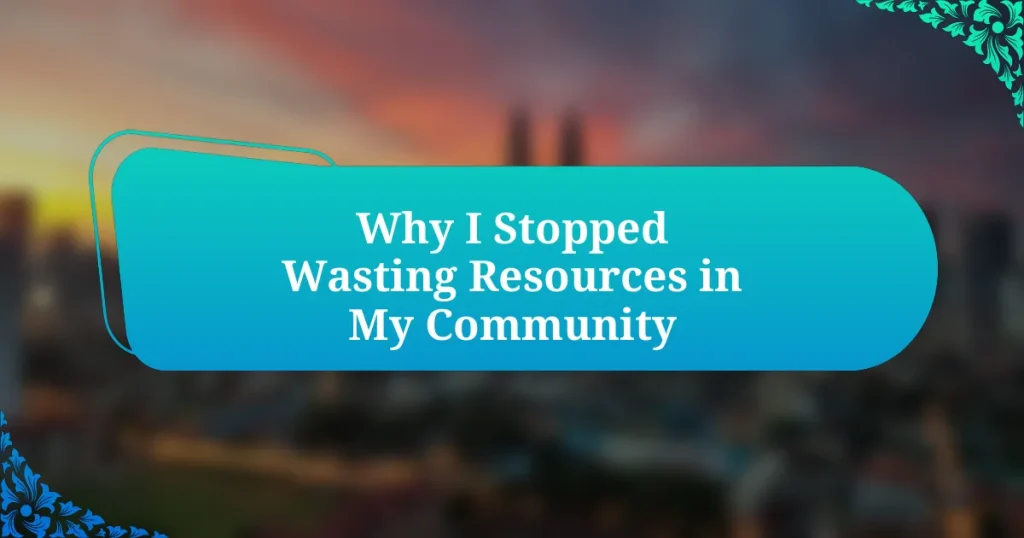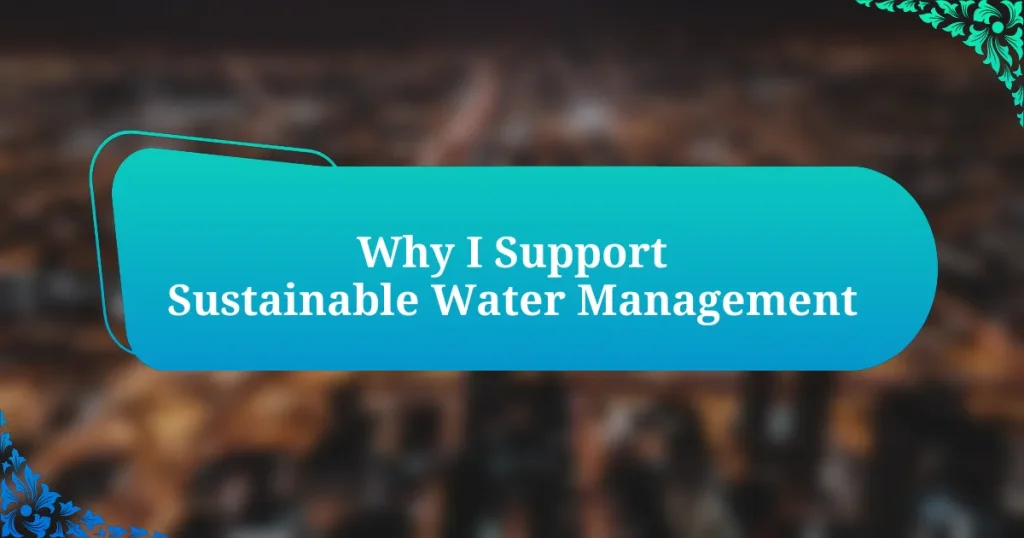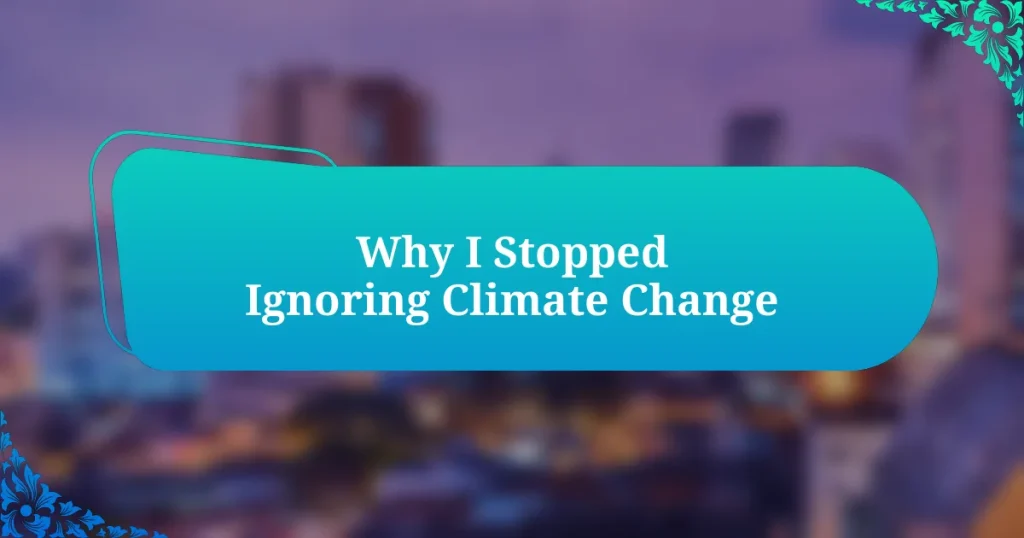Key takeaways:
- Smart waste management utilizes technology like sensors and data analytics to optimize waste collection and disposal.
- Implementing smart solutions can streamline collection routes, reducing costs and environmental impact.
- Real-time data encourages community engagement and improves recycling efforts by providing insights into waste habits.
- Smart waste systems enhance public health by making hazardous waste disposal safer and more accessible.
Author: Clara Whitfield
Bio: Clara Whitfield is an acclaimed contemporary author known for her poignant storytelling and evocative prose. With a background in psychology, she intricately weaves themes of human emotion and personal growth into her narratives. Clara’s debut novel, The Echoes of Yesterday, received critical acclaim and garnered her a loyal readership. When she’s not writing, Clara enjoys exploring nature and visiting local coffee shops, where she often draws inspiration for her next story. She currently resides in Portland, Oregon, with her two rescue dogs.
What is Smart Waste Management
Smart waste management refers to the use of technology to optimize the collection, processing, and disposal of waste. Imagine walking down the street and seeing smart bins that signal when they’re full, rather than having overflowing trash cans. It’s fascinating to think how such technology not only enhances efficiency but also contributes to a cleaner urban environment.
This system integrates sensors, data analytics, and sometimes even AI to analyze waste patterns and allocate resources more effectively. When I first encountered these smart solutions in my city, I was surprised by how much simpler it made the waste management process. People often ask, “How can technology truly make a difference?” In my experience, these innovations lead to reduced costs, less environmental impact, and improved public health.
Moreover, smart waste management can encourage recycling and sustainable practices by providing real-time data on waste types. It feels empowering to think that we are not just discarding waste, but actively participating in a smarter, greener future. I still recall how excited I felt using an app that tracked my neighborhood’s waste habits—transforming a mundane task into an engaging community effort.
Benefits of Smart Waste Solutions
Smart waste solutions significantly enhance operational efficiency. For instance, when my city implemented smart bins, it was striking to see how collection routes became streamlined. I remember speaking with a waste collector who shared that their routes were reduced by nearly 30%, which not only saved fuel but also lessened wear on their vehicles—an unexpected win!
Another compelling benefit is the positive impact on the environment. I noticed this firsthand when my neighborhood adopted a smart waste tracking app. It revealed patterns in our garbage outputs, sparking discussions among neighbors about reducing waste and increasing recycling. I was genuinely surprised by how a little data could ignite community engagement and collective action. Who would have thought that simple insights could transform attitudes toward waste?
Improved public health is another compelling reason to embrace smart waste management. One day, I walked past a smart bin that sent alerts about hazardous waste disposal. It struck me how crucial it is to have accessible solutions in place for safely managing hazardous materials. Real-time information just makes it easier for everyone to contribute to a healthier living environment, don’t you think? It’s these small but effective solutions that can lead to significant changes in how we all view and handle waste.















